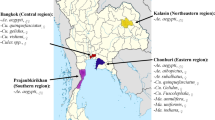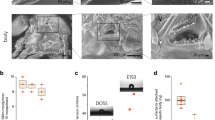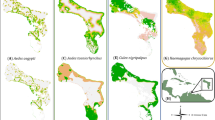Abstract
MACDONALD1 has shown that the composition of mosquito populations, as regards the proportion in the parous state, can be calculated theoretically, yielding an equation which involves the daily survival-rate and a time period based on the gonotrophic cycle. This, and a modified equation given by Davidson2, have provided a useful means for calculating daily survival rates in the field. Using similar methods, it is possible to derive a general expression which determines the composition of populations as regards the proportion in the unfed condition.
This is a preview of subscription content, access via your institution
Access options
Subscribe to this journal
Receive 51 print issues and online access
$199.00 per year
only $3.90 per issue
Buy this article
- Purchase on SpringerLink
- Instant access to the full article PDF.
USD 39.95
Prices may be subject to local taxes which are calculated during checkout
Similar content being viewed by others
References
Macdonald, G., Trans. Roy. Soc. Trop. Med. Hyg., 46, 227 (1952).
Davidson, G., Ann. Trop. Med. Parasitol., 49, 24 (1955).
Author information
Authors and Affiliations
Rights and permissions
About this article
Cite this article
COLLESS, D. Relationship between Certain Biological Constants and Trophic Condition in Mosquito Populations. Nature 182, 951–952 (1958). https://doi.org/10.1038/182951b0
Issue date:
DOI: https://doi.org/10.1038/182951b0



